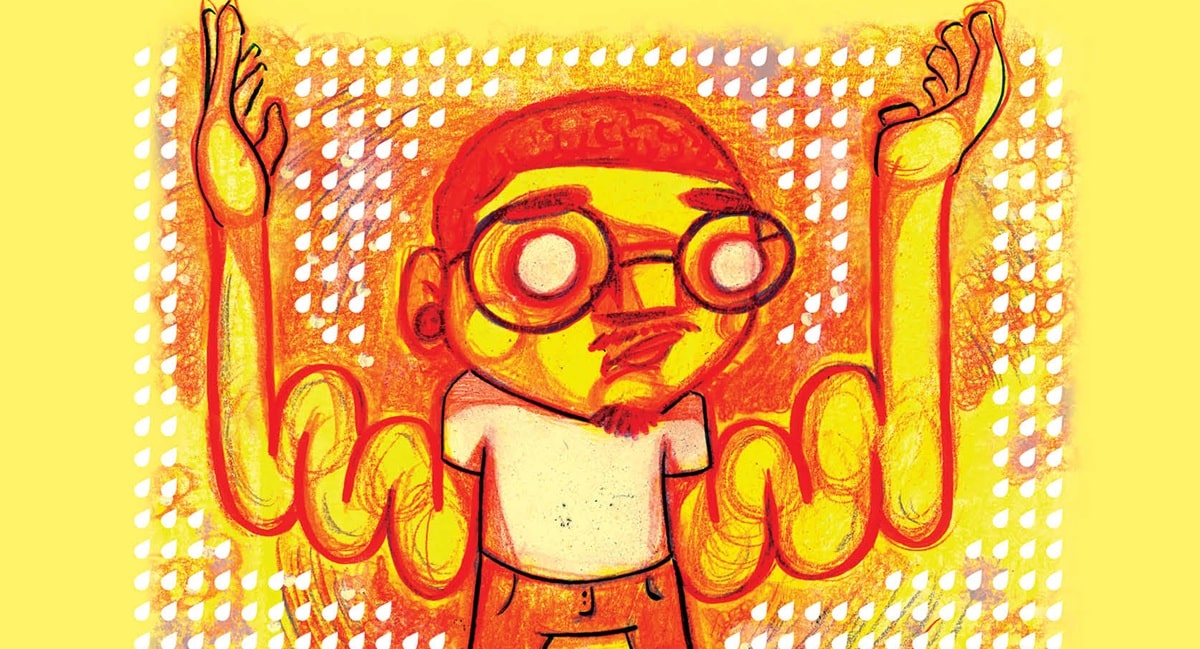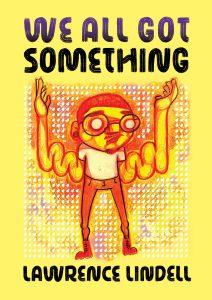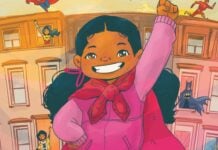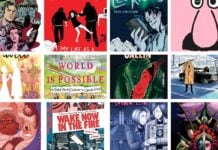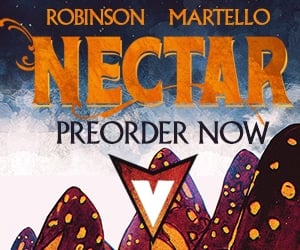 We All Got Something
We All Got Something
Cartoonist: Lawrence Lindell
Publisher: Drawn & Quarterly
Publication Date: April 2025
Following a trip to London, a break up, and an unstable future as a cartoonist, Lawrence Lindell’s latest graphic novel, the autobiographical We All Got Something, takes us through a downswing in the creator’s life. Lindell takes us through the various ups and downs of this period, including family, bipolar swings, career shifts and learning to connect with others as we navigate our own emotions and identity.
We All Got Something is a largely very good comic that’s animated by Lindell’s excellent use of lettering and compositional contradiction. Lindell’s figures are often isolated in their individual panels, talking heads on either side of his central position. As the questions or comments from his friends, family or co-workers intensifies, the figures get smaller, the lettering gets larger and the panels get tighter, creating a claustrophobic experience that literally swallows up Lindell on the page.
Lindell’s presence is always visually central but spatially insignificant, capturing the feeling of everyone talking at you or about you without you having any say or any direction of your own. The result is a story about young adulthood and the nebulous existence of a current generation that tries to carve out a space for themselves professionally and personally but are knee-capped by mental health challenges, and increasing hostility from all sides. The title is direct about this, we all got something in the most literal sense: long stories and baggage that defines us and that we feel trapped in but we’re constantly pushed forward regardless of whether we can untangle ourselves from this mess or not.
In the most basic sense, life comes down to making choices. Should I go on this path or not? Should I pursue this relationship or not? Should I text my ex or not? But the challenge is not always as clear as making the choice, but understanding that once the choice is made you can’t undo it. Lindell’s presentation of his life is one that underscores the stranglehold old choices can have on us, not simply the road not traveled but the mistakes made on the path we choose. We are always in a position to look back and wonder why we didn’t do the “right” thing when we could have, and that regret is a strong foothold for depression and trauma.
Lindell’s depiction of his life here is refreshingly honest and at times humorously self-deprecating. Afterall, hindsight isn’t just about seeing the right choice later but seeing yourself in a new light and wondering why you ever thought things would go differently. In the early parts of the comic Lindell mopes around and struggles to find a stable job, wanting instead to focus on his art but finding little success there either. The conversations with his mother that prompt his ability to get a job are often delightful slice-of-life segments, balancing Lindell’s difficult circumstances with support from people that care about him.
My favorite examples of this are the conversations with his ex, labeled on his phone as “I Miss Her.” Lindell’s mania manifests here in the way certain people in relationships can have a vice grip on your mood, the way a text back or lack thereof can define your whole day. His mood swings are drawn in humorously animated sequences that capture both the highs, lows and general absurdity of being in that position. Lindell’s greatest strength here is the ability to see the past with clarity, and present it to the reader with a sense of humbleness and approachability.
We see flashbacks of Lindell’s old relationship and how his mood, ambitions and plans flew in the face of realistic expectations. The lettering here is stellar, as his overt optimism simply bounces off the awkward pause, explaining the entire dynamic to us in a simple and efficient way.
We All Got Something’s structure is almost a series of vignettes. We move between past and present fluidly, the story isn’t focused on a strict sense of linear progression as much as it wants to juxtapose the individual scenes and how they capture the oscillating mood of its characters. Though this is where it can run into trouble, as Lindell does not have enough control over pace and the comic ends up reading, in my opinion, far too quickly rather than holding on to strong, character defining moments. As people weave in and out of Lindell’s life, as his story takes shape, there’s great joy in being able to see a full picture of this person’s life, struggles and all. But that does leave the reading wanting in some areas to get a firmer sense of who we’re meeting and where we are.
One could argue that the speed with which the comic reads is also part of the narrative, capturing the breakneck pace at which life moves, allowing you to see moments as fleeting. But that to me feels like it undercuts the wonderful work Lindell is doing on each page, from the panel layouts to the lettering that all contribute to the mood of the story and could benefit from slowing the reader down.
We All Got Something is a delightful comic, capturing mental health struggles in a humorous and gentle manner. Lindell’s style of honest expression and clarity helps us see the whole picture of his life with a non-judgemental understanding that invites empathy and leaves me with a smile on my face. While I wish there was more depth to the individual scenes, the book as a whole is a great read.
We All Got Something is available now via D&Q
And check out the Beat’s other recent comics reviews!


